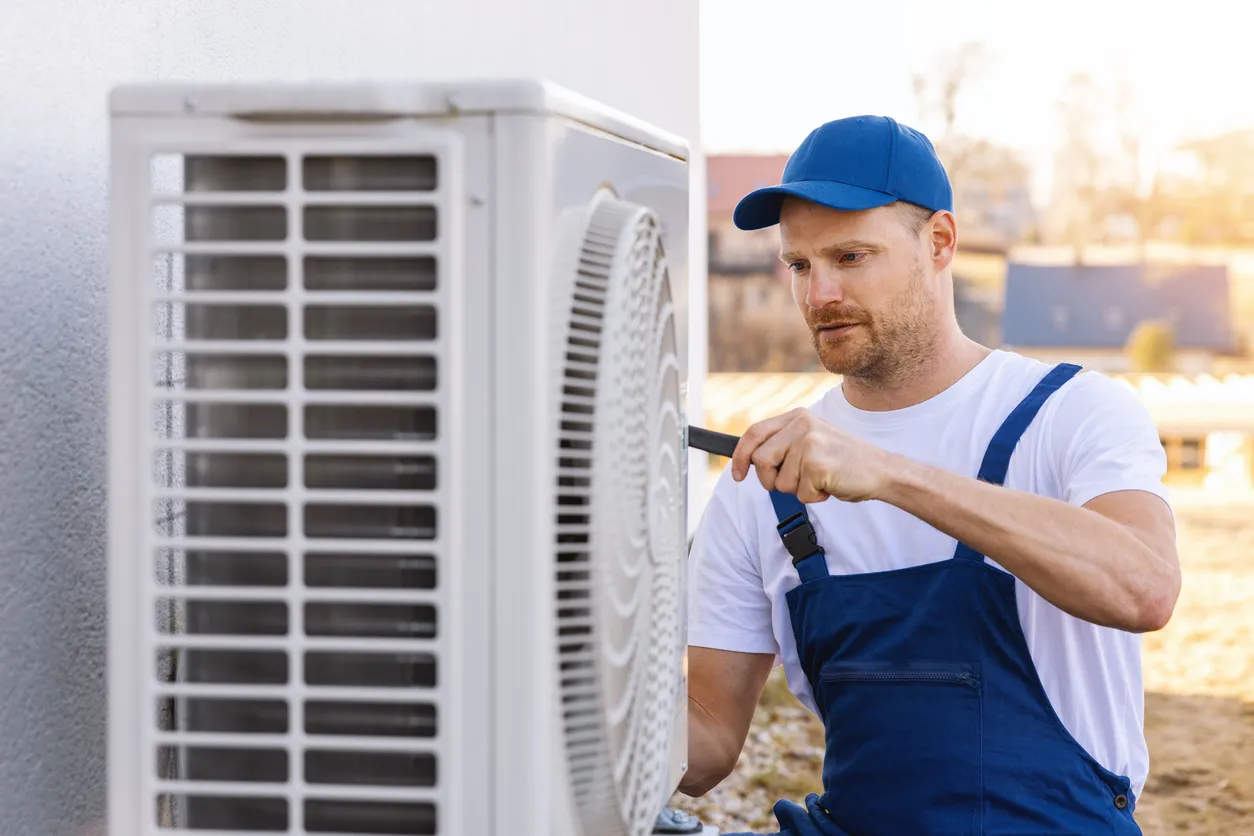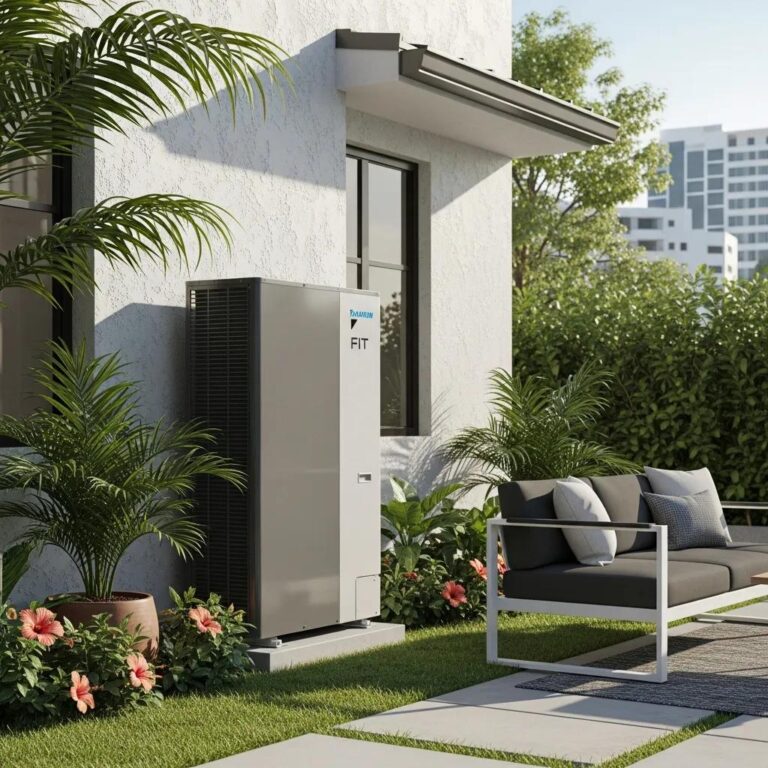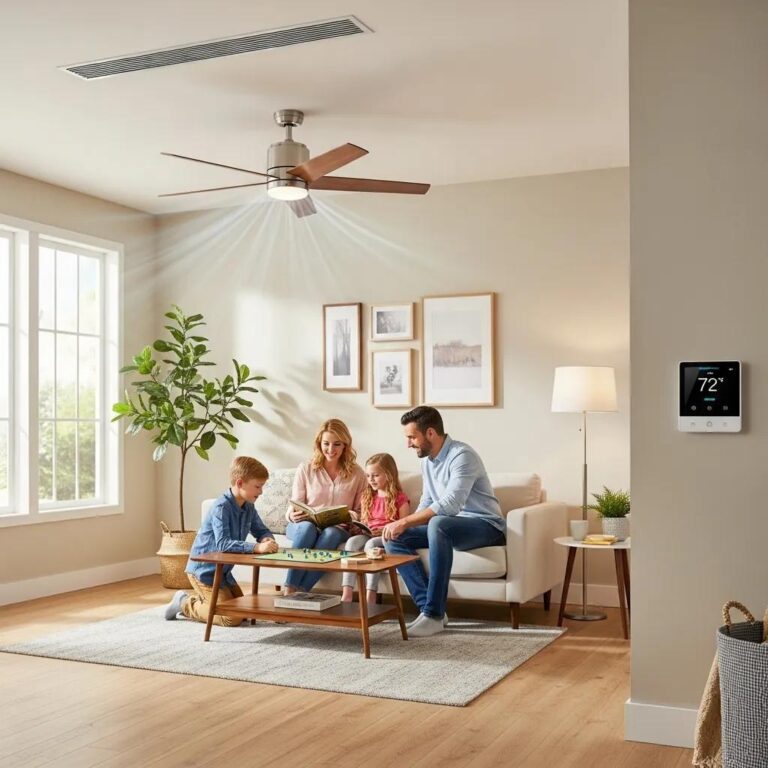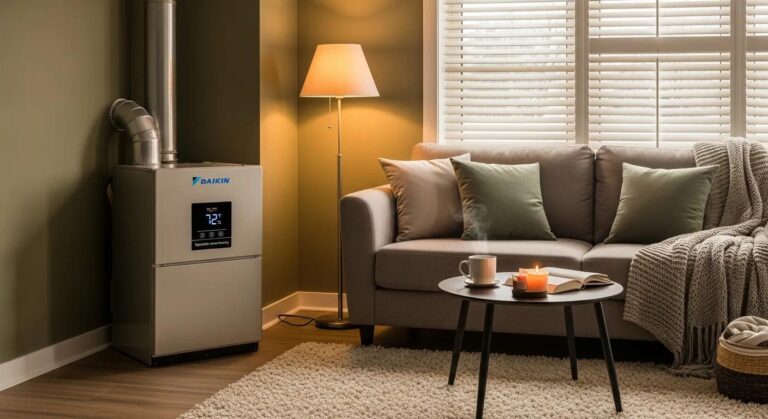Top Common Furnace Problems Miami Homeowners Should Know
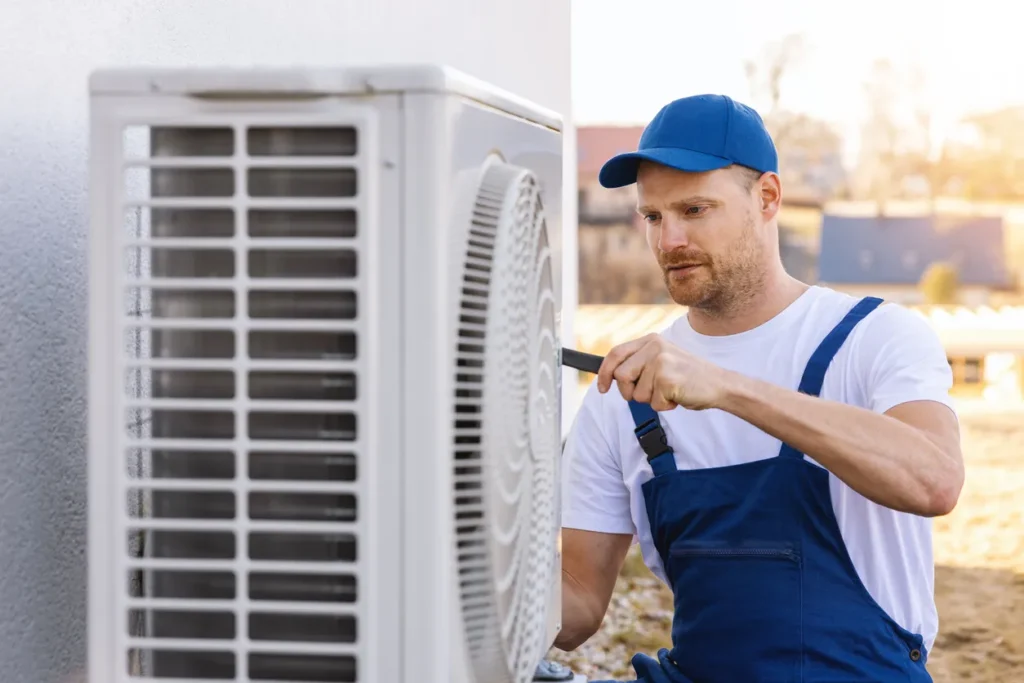
Heat Pump Problems for Miami Homeowners: Diagnose, Repair & Prevent
Heat pumps move heat between your home and the outdoors to keep indoor temperatures comfortable year‑round. In Miami they work harder than in most cities — cooling and heating cycles run almost continuously. This guide helps Miami homeowners spot common heat pump problems, explains why our coastal climate speeds component wear, and walks through safe troubleshooting you can try before calling a technician. You’ll learn how humidity, salt air, and nonstop operation contribute to issues like frozen coils, refrigerant leaks, short cycling, noisy compressors, and corrosion — all of which lower efficiency and raise bills. Each section links symptoms to likely causes, lists homeowner checks that are safe to perform, and explains when it’s time to call a pro. We also include a Miami‑focused maintenance checklist, Daikin‑specific notes for coastal installations, and transparent cost ranges so you know what to expect. The goal is practical, step‑by‑step guidance to keep your heat pump running reliably in Miami’s humid, salty environment.
Why Does Miami’s Climate Affect Heat Pump Performance?
Miami’s tropical marine climate affects heat pumps in three main ways: extra moisture, salt deposits, and near‑constant runtime. High humidity increases condensate on coils and inside housings, which encourages corrosion, mold, and poorer heat transfer — you’ll notice longer run cycles and uneven comfort. Salt in the air speeds electrochemical corrosion on outdoor coils, fan parts, and electrical contacts, and that can lead to refrigerant leaks or electrical faults if not managed. Finally, year‑round operation adds cumulative wear to compressors, motors, and fans, so components need closer attention than in temperate areas. Knowing these climate drivers helps you focus inspections and preventive steps on moisture control, corrosion protection, and more frequent tune‑ups.
How Do High Humidity and Salt Air Cause Heat Pump Corrosion?
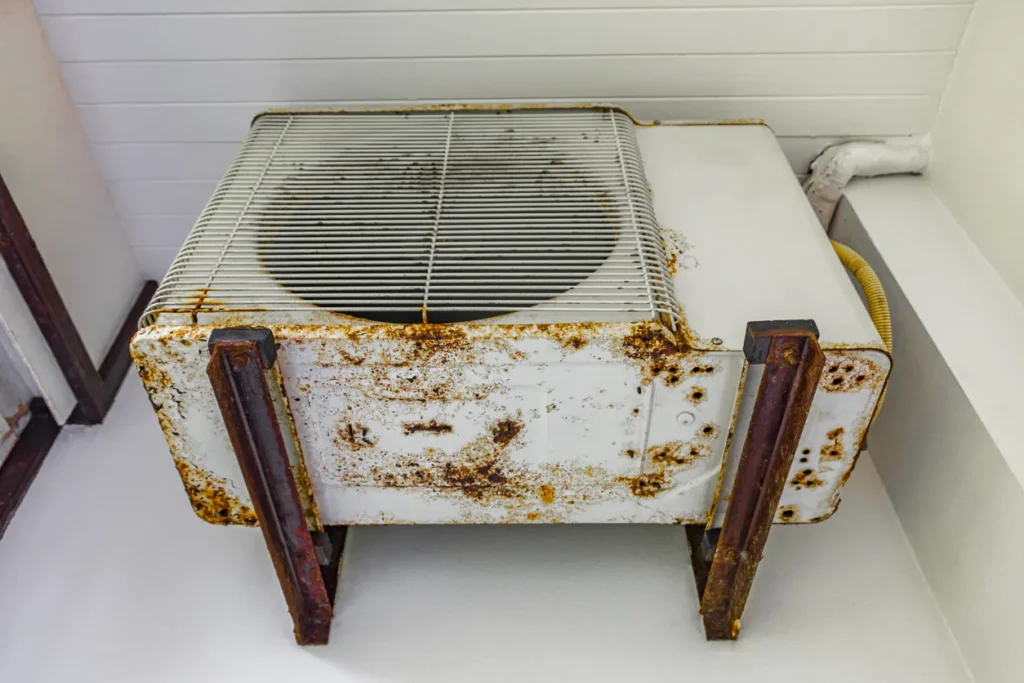
Humidity and salt cause corrosion when airborne salt settles on metal surfaces and attracts moisture, creating an electrolyte that speeds rust and pitting. That process wears coil fins, brackets, and electrical contacts faster than in drier climates. Salt crystals and trapped condensate can eat through refrigerant lines or undermine grounding and electrical connections, producing intermittent faults or full failures. In coastal homes, condensate drains and pans can collect salt and organic debris, accelerating local corrosion and fostering microbial growth. Simple protections — rinsing outdoor units, applying protective coatings to exposed metal, and scheduling targeted inspections to catch early pitting — will reduce corrosion and extend component life. Those steps also help address the wear driven by near‑continuous operation.
What Are the Top 5 Common Heat Pump Problems in Miami?
Miami homeowners most often run into five recurring issues: weak heating or cooling, unusual noises, frozen evaporator coils, refrigerant leaks, and short cycling or constant running. Each problem has recognizable signs you can check safely at home before calling a technician. The list below gives a quick action you can take right away; a follow‑up table maps symptoms to likely causes, homeowner checks, and recommended professional steps so you can triage effectively.
- Ineffective Heating or Cooling: Rooms feel uneven or the system runs longer than normal — start by checking filters and thermostat settings.
- Strange Noises: Squeals, grinding, or bangs point to mechanical wear or loose parts — turn the unit off if you smell burning or hear grinding.
- Frozen Evaporator Coils: Ice on the indoor coil or poor cooling — power down and let the coil defrost, then check filters and airflow.
- Refrigerant Leaks: Hissing sounds, loss of capacity, or ice on refrigerant lines — don’t attempt DIY refrigerant work; call a licensed tech.
- Short Cycling or Constant Running: Rapid on/off cycles or nonstop runtime that spikes energy use — check thermostat location and airflow first.
Quick reference: the table below helps you compare each top issue with common symptoms, likely causes, safe homeowner checks, and the professional action you should expect.
| Problem | Symptoms | Likely Causes | What You Can Check | When to Call a Pro |
|---|---|---|---|---|
| Ineffective heating/cooling | Weak airflow, uneven temperatures, long run times | Clogged filter, airflow blockage, low refrigerant | Swap/clean filter, open vents, clear debris around outdoor unit | Full diagnostic for refrigerant, airflow balancing, component repair |
| Strange noises | Squeal, grind, rattle, loud bangs | Worn motor bearings, loose panels, failing compressor | Check panels for looseness, note where noise comes from (fan vs compressor) | Immediate motor/compressor inspection and parts replacement |
| Frozen coils | Ice on indoor coil, reduced cooling output | Restricted airflow, low refrigerant, dirty coil | Turn unit off to defrost, check filter and return vents | Leak detection, recharge, coil cleaning, airflow repair |
| Refrigerant leak signs | Hissing, diminished capacity, ice on lines | Corrosion, physical damage, failed joints | Note hissing or odors; do not handle refrigerant | Professional leak detection, repair, compliant recharge |
| Short cycling/constant run | Rapid on/off cycles or never reaching setpoint | Thermostat problems, wrong sizing, airflow restriction | Check thermostat placement and batteries; inspect vents | Evaluate system sizing, replace control board or thermostat if needed |
Short summary: Matching symptoms to likely causes helps you prioritize safe checks and save on unnecessary service calls. When signs point to refrigerant, electrical, or compressor issues, a licensed technician prevents unsafe DIY work and ensures code‑compliant repairs.
Why Is My Heat Pump Not Cooling or Heating Effectively?
Poor performance usually comes down to restricted airflow, thermostat setup, or refrigerant issues that stop the system from moving heat efficiently. Start with simple homeowner checks: clean or replace the air filter, make sure supply and return vents are open and unobstructed, confirm the thermostat mode and setpoint, and remove debris near the outdoor unit to improve airflow. If you don’t see improvement within a day or two — or if long run times, frozen coils, or big temperature differences persist — schedule a professional diagnostic. A technician will measure refrigerant pressures, check airflow volumes, and inspect electrical components to recommend repairs, refrigerant service, or part replacement.
What Do Strange Noises from My Heat Pump Mean?
Noises map fairly reliably to causes: a high‑pitched squeal can mean belt or bearing wear, grinding often points to motor or compressor problems, and bangs or pops may be loose panels or ductwork issues. If you hear grinding, burning smells, or loud persistent banging, turn the system off immediately and document the sound for your technician. For milder rattles and hums, a quick visual check for loose panels or debris can sometimes fix the issue, but recurring or severe noises usually need a professional inspection to avoid bigger failures and higher repair bills.
How Do Frozen Evaporator Coils Develop and How Can I Prevent Them?
Coils freeze when airflow over the coil is limited or the refrigerant charge is low, letting coil surfaces drop below freezing and build ice. Homeowner steps are simple: shut off cooling to let the coil thaw, clean or replace clogged filters, and ensure return vents aren’t blocked — these actions can stop a short‑term freeze. If freezing returns after defrosting, that usually signals a refrigerant leak, failing blower motor, or heavily soiled coils that need professional repair. Regular filter changes, routine coil cleanings, and prompt attention to airflow issues cut down freeze events and keep performance steady.
What Are the Signs of Refrigerant Leaks in Miami Heat Pumps?
Common signs of refrigerant leaks include reduced heating or cooling capacity, ice on refrigerant lines or the indoor coil, hissing near line sets, and longer run times as the system struggles to hold pressure. Refrigerant service is regulated and requires trained technicians with recovery equipment, so don’t attempt DIY recharges — improper handling can damage equipment and the environment. Instead, note the symptoms, shut the system off if you smell unusual odors, and contact a licensed technician for electronic or dye leak detection, repair, and a compliant refrigerant recharge. Fixing leaks promptly protects the compressor and restores efficiency.
Why Does My Heat Pump Short Cycle or Run Constantly?
Short cycling (rapid on/off) or constant running often traces back to thermostat placement or settings, incorrect system sizing, airflow restrictions, or control board faults. A thermostat near a heat source or in direct sun can cause incorrect cycling, while oversized or undersized equipment leads to unstable operation. Check thermostat mode and batteries, and make sure vents and filters are in good condition to rule out simple causes. Persistent cycling or nonstop operation requires professional diagnostics to review controls, confirm proper sizing, and test components like capacitors or reversing valves.
When Should Miami Homeowners Call a Professional for Heat Pump Repair?
Escalating to professional service at the right time keeps you safe and avoids bigger bills. Call immediately for electrical burning smells, visible smoke, refrigerant leaks, or complete system failure. For urgent but non‑emergency problems — repeated freezing, major capacity loss, or unresolved loud noises — schedule service promptly; Miami’s climate can turn small issues into big ones quickly. The checklist below shows which signs are emergencies, which need timely repair, and what details to gather for the technician to speed diagnosis. Following these guidelines balances safety and cost‑effective decision making.
- Emergency signs requiring immediate service:Smoke or a burning electrical smell coming from the unit.Visible refrigerant hissing or strong chemical odors.Sparks or breakers that keep tripping after resetting.
- Urgent repair signs to schedule within 24–72 hours:System fails to reach setpoint for prolonged periods.Coils freeze repeatedly after basic homeowner steps.Loud, worsening mechanical noises or sudden airflow loss.
- Non-urgent but important items:Steady efficiency decline or rising energy bills without an obvious cause.Intermittent faults you can document for the technician.
Bottom line: Act fast for emergencies to protect safety, and schedule prompt repairs for urgent signs to prevent escalation and lower lifecycle costs for your Miami heat pump.
What Heat Pump Issues Require Immediate Expert Attention?
Seek immediate professional help if you notice smoke, burning smells, visible refrigerant leaks, electrical sparking, or a sudden full system shutdown — these pose fire, health, and environmental risks. In those situations, turn the unit off at the breaker, ventilate enclosed spaces if chemical smells are present, and don’t touch refrigerant lines or electrical terminals. Record observed symptoms, any sounds, and recent events that led up to the failure so the technician can diagnose faster. A pro will perform electrical safety checks, contain any refrigerant release, and prioritize repairs or safe isolation of the system.
How Does Air New Solutions Provide Fast and Reliable Heat Pump Repair in Miami?
Air New Solutions is a family‑owned Miami HVAC company offering heat pump repair, installation, maintenance, and indoor air quality services with an emphasis on local climate issues and customer care. Our technicians are trained to diagnose problems common to coastal systems — corrosion, refrigerant leaks, and frozen coils — and we keep parts and diagnostic tools handy for faster turnarounds. As a Daikin Comfort Pro dealer, we can work with manufacturer parts and follow Daikin diagnostic protocols when needed. If you want a quick inspection or prioritized repair, reach out and we’ll match service options to your heat pump’s needs.
Conclusion
Knowing the common heat pump issues in Miami helps you keep your system running and avoid costly repairs. Recognize signs such as strange noises, frozen coils, and refrigerant leaks, and take the simple homeowner steps outlined here before calling for service. Regular maintenance and timely professional help are essential to counter Miami’s humidity and salt‑air effects. When you need expert assistance tailored to your unit, contact our team — we’re local, experienced, and ready to help.



